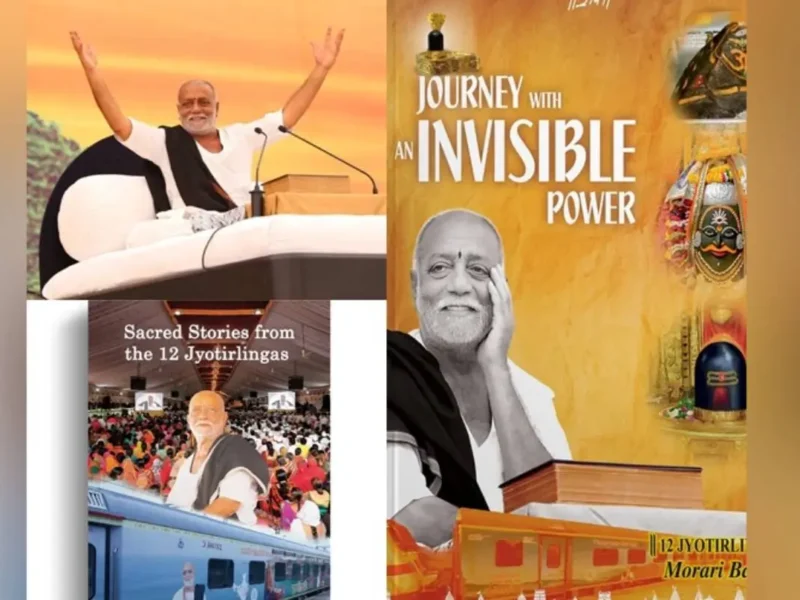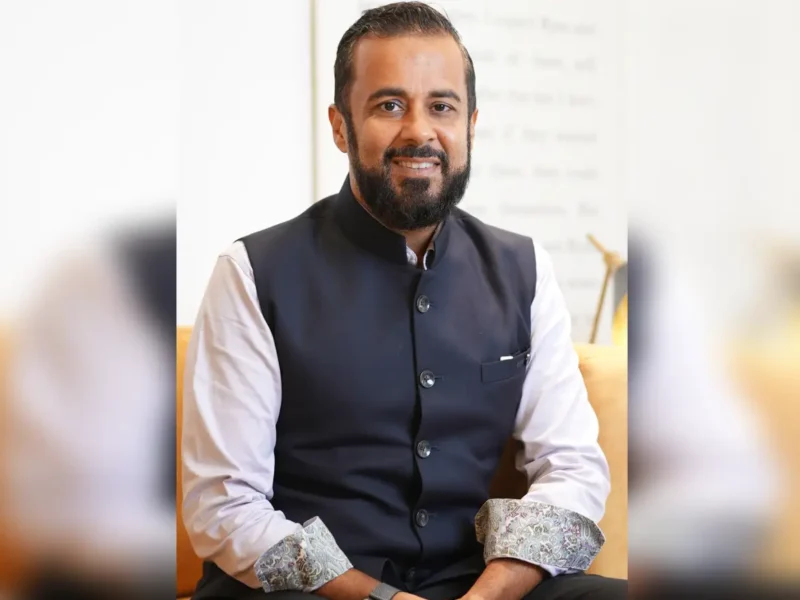
Editors, Like Translators, Work Invisibly: Rahul Soni
NEW DELHI, (IANS) – While writing on/interviewing several authors who have won major awards, a name would come up repeatedly in the conversation — Rahul Soni. They insisted that the work would not have in its current avatar if Soni had not edited it. One of them even said, “He deserves the award as much as I do — for acquainting me with so many possibilities…”
And they were also right about another thing — he liked being in the shadows.
Also, a translator, his translation of Shrikant Verma’s milestone book of poetry ‘Magadh’ which was published in 2013 has been revised and recently hit the stands.
In fact, the editor/translator’s translation of International Booker Prize-winning author Geetanjali Shree’s ‘The Roof Beneath Their Feet’ was also republished two months ago.
Soni, who first encountered Verma’s ‘Magadh’ in 2007 post a friend’s recommendation remembers that he started translating it almost immediately before he had even finished reading the collection in its entirety.
“I was struck most of all by the language, the most arresting thing about the collection — the almost paradox of its pared-down vocabulary and repetitions, against the slippery circularity and riddle-like ambiguities of its locations. There was also the intense, often unbearably overwhelming, even indiscriminate, sense of loss — for times, for places, for people — that haunted its pages. I had never translated anything until then; in fact, I didn’t think of what I had begun doing as ‘translation’ at all — I was just so struck by the voice of these poems that I wanted to see if it was possible to achieve those effects in the language I wrote in, i.e., English.”
Stressing that there cannot be a rigid ‘process’ when it comes to translations, he feels different texts require different approaches, thus the process can also change, and it is hard to make general rules. For him, the effort is to try and replicate the effects of the original (“there’s a phrase I’ve grown very fond of the ‘literal force’ of a text”) in the target language without adding or subtracting anything — which he feels is that is ideal.
“The other thing I try very hard to do is to resist interpreting. As a translator my job, I feel, is not to impose meaning on a text. It helps, for me, to approach the early drafts as a writer — to try to create a poem or a story that works first, and then over the course of many drafts and revisions get closer and closer to the original…”
Talk to him about the many writers who acknowledge his work and if editors are finally coming out of the shadows, and he stresses that editors, much like translators, have been mostly doing their thing invisibly; often the best compliment to their craft has been that it is unnoticeable…
“I feel lucky that my work has been acknowledged, and I have had the good fortune of getting to work with a number of remarkable writers and translators, perhaps more than my fair share…”
Someone who co-founded ‘Pratilipi’, a bilingual literary journal that carried a lot of translations and was also associated with ‘Almost Island’ and ‘Asymptote’, he feels we need many more small magazines.
Arguing that small presses and little magazines are crucial to the health of literary culture in any language — to keep it vibrant, diverse, to push the envelope and take risks, he adds, “One cannot rely on mainstream publishing to do that.”
While the past decade-and-a-half has witnessed a boom in translations from Indian languages into English, he says some important changes that have come about in the past few years – Arunava Sinha’s translation of Sankar’s Chowringhee and then Srinath Perur’s translation of Vivek Shanbhag’s Ghachar Ghochar were perhaps key turning points.
“Translation has moved beyond the realm of the worthy, you-ought-to-read-this literary classic, and the focus has shifted equally to more modern and contemporary literary works, and to a larger variety of works — including non-fiction, and commercial and genre fiction. Some major literary prizes now recognize and award translations; there is more awareness in the media and more conversation around it. So there has been more work in translation being published perhaps – or it’s been more visible, certainly. I’m not sure it has necessarily translated into a greater readership for these books though.”
As the conversation veers towards the market for literary works published in English in India, he feels the same has always had a very niche audience owing to a host of economic and socio-cultural reasons.
Stressing that the average sales of a work of ‘literary fiction’ in the English language in India, whether it has been written originally in English or is a translation, are not very different, the editor-translator adds, “Poetry fares a little worse, but again, I’m sure the numbers for English originals and translations are not all that different here either. I do not think most readers of literature discriminate between whether a work is a translation or not. It is a small market, one that I don’t think has expanded much in the past many years and will not rapidly expand in the near future.”




